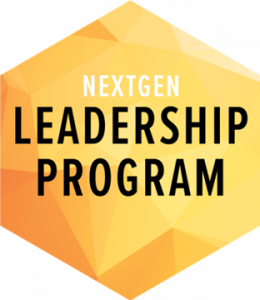 Mentorship. The word is gaining a lot of traction in the public sector and is clearly a buzzword in 2017. But despite all the buzz, a lot of confusion surrounds what a mentor actually does.
Mentorship. The word is gaining a lot of traction in the public sector and is clearly a buzzword in 2017. But despite all the buzz, a lot of confusion surrounds what a mentor actually does.
So what makes a great mentor? What attributes come together in a person so they can become a true advisor for their colleagues?
To start, let’s go back to the definition of a mentor, which is: a trusted counselor or guide. And the idea sound simple enough. A mentor is someone who willingly offers advice to a fellow colleague to help them on their career path. A mentor relationship can be conducted through a robust training program or by simply grabbing coffee with a colleague.
But no matter the nature of the mentorship relationship there are a few clear indicators that show that a person would make an excellent mentor.
A true mentor…
- Actively Listens – The average person can speak 150 words per minute, but they can listen to 1,000 words per minute. That discrepancy gives the listener plenty of time for their mind to wander. So the key to a great mentorship is to create a space for active listening – a place where the mentee not only feels heard, but empathized with. For tips on active listening, head here.
- Offers Concrete Advice – Sometimes a mentee will come into a mentoring session with a vague or lofty goals. The key for a successful mentorship is to provide real, tangible steps a person can take to get ahead. Mentioning a specific training course or a particular leadership book to read are good examples of concrete steps a person can take.
- Is Responsible and Respectful – A formal mentorship agreement means that both the mentor and mentee have committed to the process. A great mentor will follow through on that commitment. Obviously situations arise that could cause a mentor to miss a session here or there, but a great mentor will make sure to reschedule. And just as important, a good mentor will be present and respectful. Mentors won’t be checking their phones or emails during the mentorship session.
- Advocates for your Mentee – One of the cornerstones of a great mentorship relationship is the investment a mentor makes in their mentee. If a mentor is willing to put in extra time to make sure that their mentee is getting the resources and advice they need to get ahead – that’s a hallmark of a great mentor.
- Is Curious – This attribute might seem a bit odd, but curious mentors are invested in finding the best ways to help their mentee. They want to know more about how their mentee works and their goals in life. People who are curious tend to follow the “if there’s a will, there’s a way” philosophy. If they don’t know the answer or if they need help with something, they won’t sit back and wait; they’ll go looking for the answers. A curious mentor is a mentor who is ready to go the extra mile for their mentee.
If these attributes sound familiar to you, GovLoop is looking for mentors to join our NextGen Leadership program. We’re searching for 50 mentors to help guide the best and brightest of our future government leaders during our six-month NextGen Leadership program.
If you’re interested in signing up to volunteer as a mentor, please fill out this form. We look forward to matching you with an engaged, and motivated mentee!






These are great attributes Emily – thanks for sharing! Mentorship programs are only as strong as the people that become mentors. If your organization has a formal mentorship program, find out how the vet people that become mentors. Often times it is simply those that volunteer – and are not necessarily the best mentors (see Emily’s article above).
Please do not overlook the importance of informal mentorship. The attributes are the same, just without the formal program. I work for a small state agency (about 70 employees) with no formal program. But in my team of six, four of my 5 colleagues, including my boss, are all younger than my oldest kid. The 5th person is still a good 15 years younger than me. I take my informal role of mentoring them and helping them develop very seriously. We have great team dynamics. They appreciate my experience and advice and I love the energy and innovation they bring to the table. You don’t need a formal program to be an effective mentor.
Great article Emily,
We are practicing those traits in our mentor program and I am forwarding your article to the others mentors.
How does one volunteer to be a mentee? Thank you!